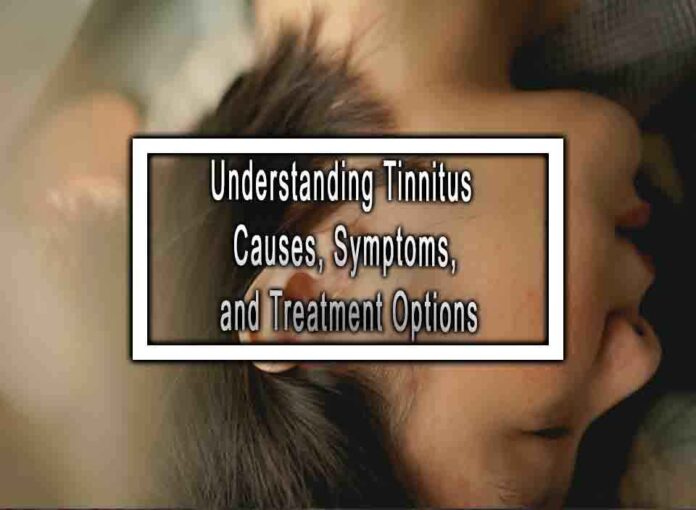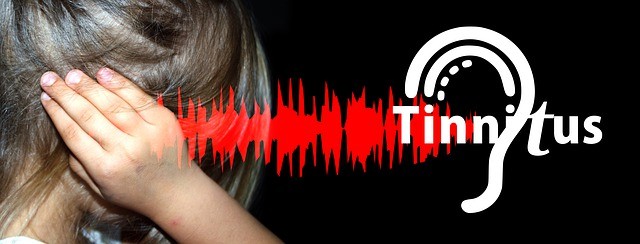Tinnitus is a condition characterized by the perception of noise or ringing in the ears when no external sound source is present. It can be a temporary or chronic condition and can vary in intensity. Here’s an understanding of tinnitus, including its causes, symptoms, and treatment options:
Causes:
- Noise Exposure: One of the most common causes of tinnitus is exposure to loud noises, such as music concerts, gunfire, or heavy machinery. This can lead to damage to the hair cells in the inner ear.

- Age-Related Hearing Loss: Tinnitus is often associated with age-related hearing loss, known as presbycusis, which can result from the natural aging process.
- Earwax Blockage: A buildup of earwax can cause tinnitus by blocking the ear canal or causing irritation to the eardrum.
- Medical Conditions: Tinnitus can be a symptom of certain medical conditions, such as Meniere’s disease, otosclerosis (abnormal bone growth in the middle ear), and temporomandibular joint (TMJ) disorders.
- Medications: Some medications, particularly those that are ototoxic (harmful to the ear), can lead to tinnitus as a side effect.
- Injury: Head or neck injuries can damage the auditory system and result in tinnitus.
- Cardiovascular Issues: High blood pressure, atherosclerosis (hardening of the arteries), and other cardiovascular conditions can affect blood flow to the ears and trigger tinnitus.
- Stress and Anxiety: High levels of stress and anxiety can exacerbate tinnitus or make it more noticeable.
Symptoms:
- The primary symptom of tinnitus is the perception of sound when there is no external source. These sounds can vary and may include ringing, buzzing, hissing, whistling, clicking, or roaring. Tinnitus can be constant or intermittent and may affect one or both ears.
Treatment Options:
- Address Underlying Causes: If tinnitus is caused by an underlying condition, such as earwax buildup or medication side effects, treating the root cause can alleviate or eliminate the symptoms.
- Hearing Aids: For individuals with hearing loss and tinnitus, hearing aids can improve overall hearing and reduce the perception of tinnitus by amplifying external sounds.
- Sound Therapy: Sound therapy involves using external noises, such as white noise, nature sounds, or music, to mask or distract from the tinnitus sound.
- Cognitive Behavioral Therapy (CBT): CBT can help individuals manage the emotional distress and anxiety associated with tinnitus by changing negative thought patterns.
- Tinnitus Retraining Therapy (TRT): TRT combines counseling and sound therapy to help individuals habituate to tinnitus and reduce its perceived impact.
- Medications: In some cases, medications such as antidepressants, antianxiety drugs, or vasodilators may be prescribed to manage tinnitus symptoms.
- Alternative Therapies: Some people find relief through alternative therapies like acupuncture, chiropractic adjustments, or dietary changes.
- Stress Management: Practicing relaxation techniques, yoga, or mindfulness meditation can help reduce stress and improve tinnitus symptoms.
- Avoidance of Triggers: Preventing exposure to loud noises and protecting your ears in noisy environments can prevent tinnitus from worsening.
It’s important to note that tinnitus is a complex condition, and what works for one person may not work for another. Treatment options should be tailored to the individual’s specific symptoms and needs. If you are experiencing tinnitus, it is advisable to consult with a healthcare professional or audiologist for a thorough evaluation and appropriate management plan.











